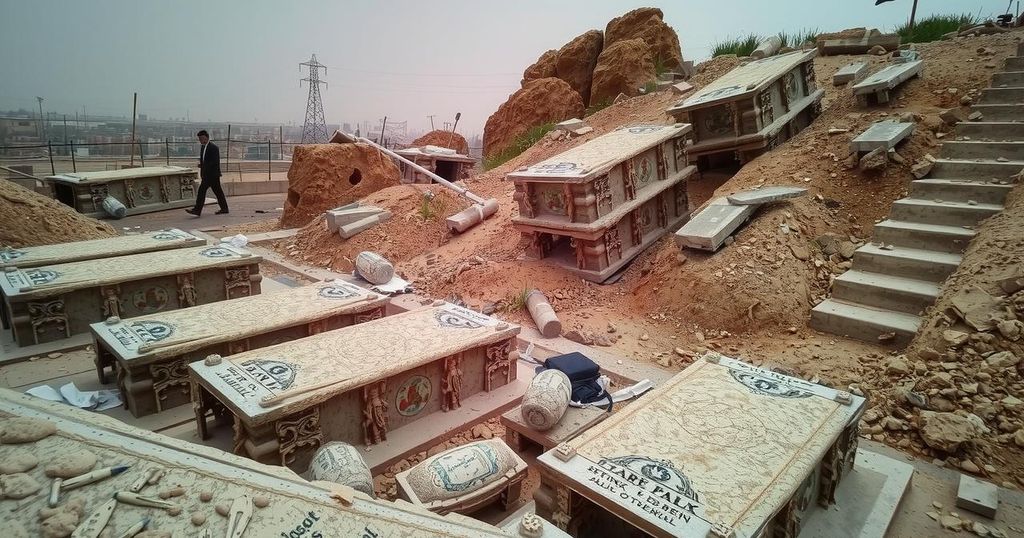Human Rights Watch has identified a mass grave in Damascus, suggesting it is linked to summary executions by Syrian government forces. Investigations reveal numerous human remains from a massacre in 2013, prompting calls for swift action by transitional authorities to preserve evidence critical for accountability. Resident testimonies further indicate a pattern of violence in the area.
Recent investigations by Human Rights Watch reveal the existence of a mass grave in the Tadamon neighborhood of Damascus, suggesting this site may be linked to past summary executions and other significant human rights violations. During visits to the location on December 11 and 12, 2024, researchers found numerous human remains, confirming reports of atrocities that have taken place since April 2013. The organization calls for immediate action from transitional Syrian authorities to secure and preserve evidence related to these grave international crimes.
The mass grave is believed to be the burial site for victims of an April 2013 massacre, with evidence pointing to execution-style killings carried out by Syrian government forces and militia. Hiba Zayadin, a senior researcher at Human Rights Watch, emphasized the urgency of safeguarding these sites to prevent the loss of critical evidence necessary for future accountability efforts. Additionally, testimonies from local residents reveal the chilling prevalence of summary executions in Tadamon during the conflict.
Despite evidence suggesting the location’s significance, the area remains vulnerable to further degradation of potential evidence. Currently, residents report restrictions imposed by pro-government paramilitary forces who have historically prevented access to these sites. Witness accounts and a leaked video of the massacre corroborate claims of a systematic approach to extrajudicial killings by government forces, underscoring a broader pattern of state violence throughout the conflict in Syria.
Syria has been embroiled in a devastating civil conflict since 2011, characterized by widespread human rights abuses, including extrajudicial killings and summary executions, predominantly executed by government forces. The international community has documented numerous incidents of violence and torture as part of state policy aimed at suppressing dissent. Mass graves, like the one in Tadamon, have emerged as critical focal points for understanding the extent of these crimes and seeking justice for victims and their families. The transitional authority in Syria has the responsibility to investigate and secure such sites to uphold the rule of law and facilitate accountability.
In conclusion, the findings of Human Rights Watch regarding the mass grave in Tadamon underscore the urgent need for transitional authorities in Syria to act decisively in preserving vital evidence of past atrocities. The systematic nature of the violence perpetrated against civilians during the conflict demands accountability and justice for the victims and their families. Ensuring access for independent monitors and involving international support are crucial steps toward addressing the legacy of these horrific crimes in Syria.
Original Source: www.hrw.org






